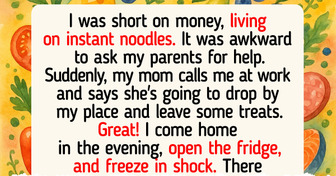I have news for you. She is a teenager, you ARE the enemy. You are also her parent, give her chores and make sure she understands her 'friends' aren't the ones who pay her way, buy her clothes or feed her.
I Took My Daughter’s Phone Away to Discipline Her, but It Unexpectedly Caused Chaos
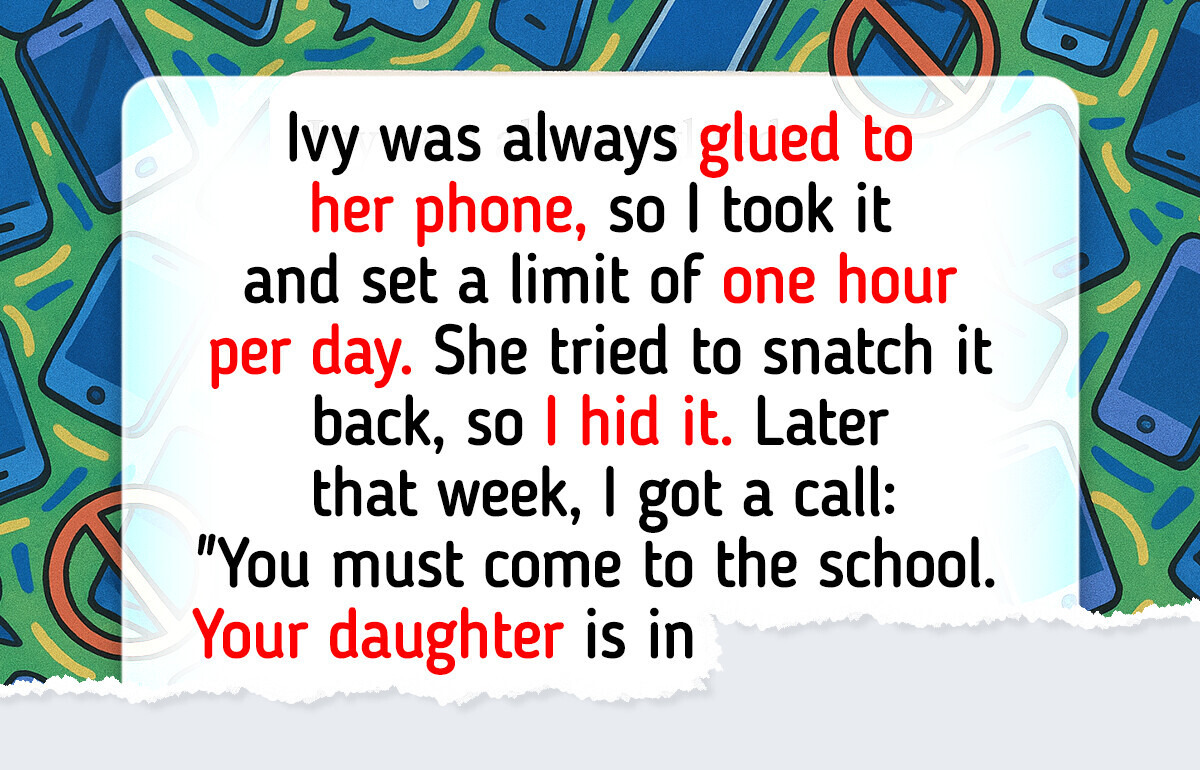
When a mom cut back her daughter’s screen time, she never anticipated an emotional outburst. What started as a rule soon turned into a battle of wills. This isn’t just a tale of cutting back on device use; it’s a journey into understanding frustration, emotions, and communication.
Hey,
So, my daughter’s always on her phone, like, nonstop. I got fed up and set a rule of only one hour a day on her phone. Well, she was NOT happy about it. “You’ll regret this!” she yelled at me.
Then, last week, I get this urgent call from her school. The teacher says, “Please come, your daughter’s in the principal’s office.” I rush over there, not knowing what I was walking into.
Turns out, she got caught using a phone during class, watching TikTok while the teacher was talking. But, I had her phone at home. They showed me the one she was using.
It wasn’t hers, it was a different one. She had borrowed it from a friend and was hiding it in her locker.
When we got home, I had to ask her about it. She didn’t even try to deny it. “You just don’t get it!” she snapped. “My friends are everything! You’ve cut me off from everyone!”
I told her, “You lied. You broke the rules at school, and you hid it from me.”
She cried, and I kept my cool, but inside, I was really mad. Not just because she disobeyed me, but because I feel like I don’t even know her anymore. I ended up grounding her.
But now, I’m wondering if I’m just making it worse. Every time I try to talk to her, she looks at me like I’m the enemy. What should I do next?
Kirsten
Kirsten’s situation is a common struggle many parents face: how to set limits without pushing their kids further away. The tension between wanting to protect them and letting them grow into their own person can feel overwhelming, especially when every rule feels like a battle. It’s not just about the phone, it’s about the deeper emotional disconnect that can come with trying to navigate these challenges.
So, what can be done when you feel stuck between being the bad guy and just trying to keep the peace? Let’s take a closer look.
1. Understanding Your Teen’s Digital World

Communication for teenage now based on cellphone 📱 also she will get dissed with other if she can't talk to them. Just be careful, there already plenty of case children goes suicidal because their parents do decision like YOURS. ⚰️🪦☠️
Your daughter’s not just passing time on her phone, she’s building her world. Teens don’t get glued to their screens out of laziness or rebellion; they do it because it’s how they connect, express themselves, and make sense of who they are. For them, social media isn’t an add-on, it’s their life. So when you took the phone away, it wasn’t just about limiting screen time; it felt like cutting her off from her whole world.
Rather than seeing the phone as the enemy, ask what she’s using it for. Is it for validation? An escape? Or simply to cope with the emotional rollercoaster of being a teenager? Approach it with curiosity, not judgment. Ask her about it and genuinely listen.
Try something like:
🗣️ “When you said your friends mean everything to you, it really stuck with me. Can you help me understand why staying connected is so important?”
This isn’t giving up, it’s opening the door to understanding.
2. The Hidden Motivation Behind Teen Defiance
The second phone wasn’t just a simple act of defiance, it was her way of adapting. Yes, she broke your rule. Yes, she made a mistake. But instead of seeing this as her “lying to me,” try thinking of it as her “finding a way to cope.”
Her world was suddenly confined to an hour a day, so she came up with a solution. It might look like rebellion, but at the core, it’s more about her need to maintain something important. Teens are like young plants: too much pressure from above, and they’ll twist and stretch in unexpected ways just to survive.
Now’s the time to shift gears:
🗣️ “I was hurt and angry because I felt betrayed. But I also see you were trying to hold on to something that mattered to you, even if it meant keeping it hidden. I want to understand what made being online so important that you were willing to risk everything.”
This isn’t about catching her, it’s about understanding her, so she knows she doesn’t have to hide in order to be heard.
3. How to Speak Your Teen’s Emotional Language

Kids have hardly any boundaries anymore. The kids are the adults and adults are afraid they'll upset the kid so they're not adulting. Mad, glad, sad, regardless the teen daughter absolutely disobeyed, defied her mother, so absolutely there's consequences! Never cave, never back down! Be the parent! Continue parenting because so many don't parent anymore and it's quite evident in all the out of control teens!
At this moment, your daughter isn’t pushing you away, but rather distancing herself from the version of you that feels like a threat to what’s important to her. What she may not realize is that you both have the same goal: to help her grow. The problem is that you’re approaching things in different ways. You focus on logic, while she’s guided by her emotions. When you mention rules, she interprets it as a lack of understanding for her feelings. When you talk about trust, she feels isolated. What she really needs is someone who can connect with her on both an emotional and rational level.
Consider trying this instead:
🗣️ “You’re not in trouble right now. I just want to understand what’s going on for you, what’s so important that you’d take such risks. I don’t want to control you, I just want to support you, but I need to know what that support looks like to you.”
Let her feel heard, not as someone being punished, but as a young person navigating tough choices. Even if she doesn’t immediately respond, she’ll remember that you gave her a chance to speak her truth.
Navigating the emotional landscape of parenting a teen can be challenging, but finding common ground is key. By opening up those lines of communication, you’re not just setting boundaries—you’re building understanding. If you’re looking for more ways to help your child thrive beyond their screens, check out this article on how nostalgic activities can foster growth and connection.
Comments
she's used to being with her phone all the time. I think 1 hour per day is too drastic for her maybe
If her friends are ultimately so important to her shouldn't she be happy you're giving her face time with them rather than using her school educational time to hold text conversations with them? I work in a grocery store and it is so disheartening to see parents occupying their toddlers with tablets rather than conversing with them or young people obviously having conversations by text when 6 inches apart, it's idiosy.
Related Reads
I Only Take My Real Grandchildren to Family Events—Am I Wrong?

My MIL Tried to Control My Wedding—So I Turned the Tables

My Parents Gave All Their Money to My Unemployed Brother—So I Served a Payback They Won’t Forget
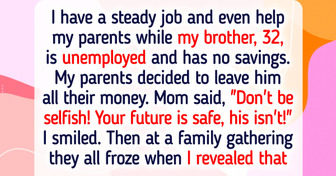
18 Times Kindness Quietly Saved Someone’s World

15 People Who Turned an Ordinary Day Into a Movie Without a Script

My Neighbor Refused to Help My Autistic Son, She Wasn’t Ready for My Revenge
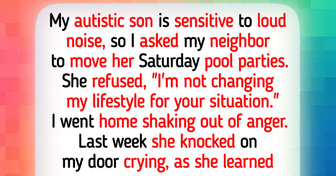
12 Life Stories That Prove Kindness Is a Safe Oasis Amidst Life’s Chaos

13 Teachers Who Didn’t Just Teach a Subject, They Rescued a Soul

I Refused to Be the Office’s “Go-To” Holiday Backup Just Because I’m Single

10 Stories That Prove Work-From-Home Isn’t Always What HR Promised
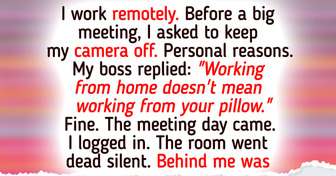
I Demand That My 16 Y.O. Daughter Pay for Rent and Groceries, Nothing in Life Is Free
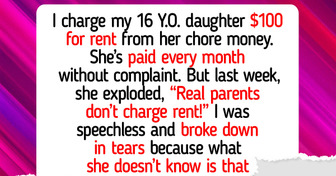
20+ Stories That Prove Having a Supportive Family Is the Best Safety Net in the World
